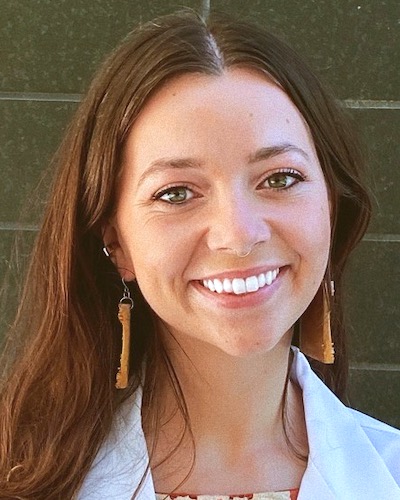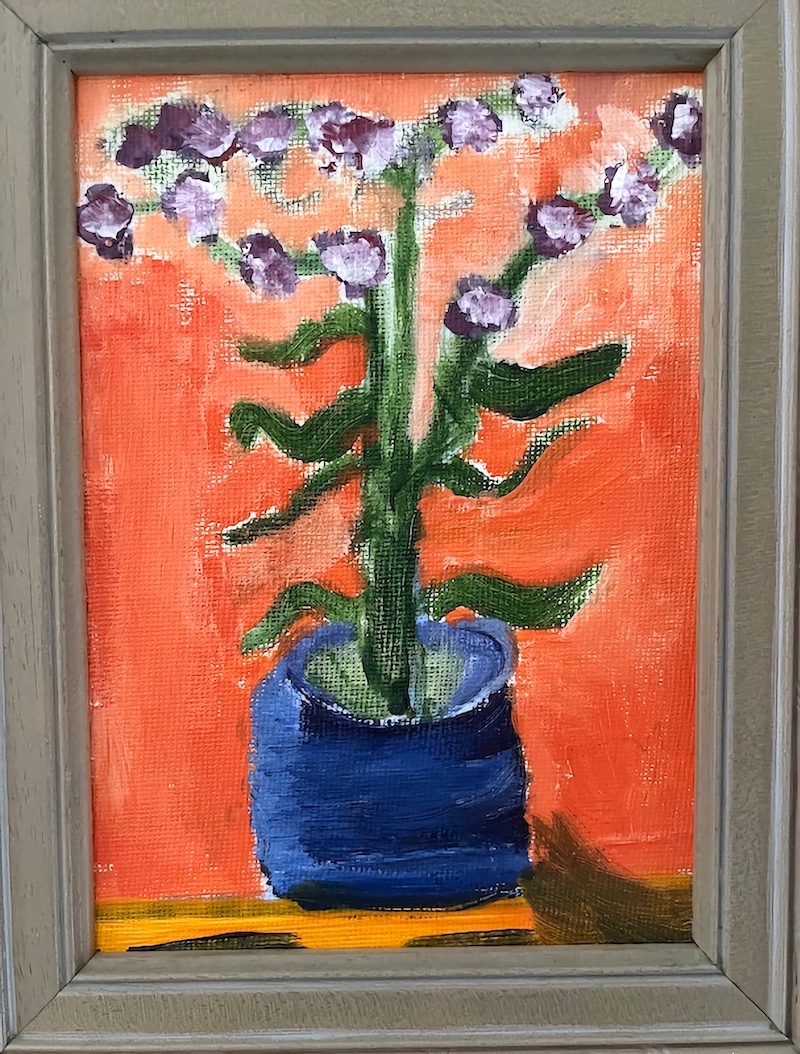Student Blog
Leah

Finding Housing in LA When Moving from Out of State! ⟩
January 9, 2023, by Leah
Community Housing and Transportation Life Hacks Living in LA
While from Northern California, I had been living in Seattle, WA for a few years before moving to LA for USC.
Things I considered when looking for housing in LA
Cost
While there are plenty of benefits to living in Currie Hall (convenience / community aspect of living around a lot of other OT students) I thought it was too expensive for my budget. I wanted to find something more affordable in the East LA area. I paid $860/month the first year and now $950/month (boo inflation) but I still found this more affordable than a lot of other options I was seeing.
Some neighborhoods I checked out
Alhambra, Pasadena, Highland Park, Monterey Park, San Gabriel, Arcadia, Los Feliz, and Silverlake.
Who to live with
I was interested in living with other graduate students since we would be understanding of each other’s schedules and interests. I moved in with 2 second year physical therapy students. I loved that we were in fields similar enough to be excited about what the other person was studying, but I felt like it relieved me from pressure of always having to talk about school with roommates. It was also super helpful that the apartment was already mostly furnished since I did not have furniture from when I lived in Washington.
My interests / hobbies
While living in Seattle, some of my favorite occupations included being outdoors hiking or camping. I decided to live in the Alhambra area due to its easy access to the Los Angeles National Forest. I love seeing mountains from my window and being only 20 minutes away from several trailheads. If you are really interested in the beach / surfing / etc. then West LA might be a better fit!
Helpful Facebook pages I joined
- USC Graduate Student Housing
facebook.com/groups/344453725628321 - Young Females: LA — Los Angeles Housing, Rentals, Rooms and Sublets
facebook.com/groups/375969193143590 - House Apts Room for rent in Glendale, Pasadena, Burbank, Alhambra, Arcadia
facebook.com/groups/GlendaleRoomForRent
⋯

Tips for Your Personal Statement ⟩
November 4, 2022, by Leah
Admissions Life Hacks What are OS/OT?
Here are some tips and tricks on what helped me write my personal statement 😊
1. Reflect on what matters to you and see how it aligns with the school’s mission
I thought, why do I want to be an OT? I read through the division’s mission and most resonated with its commitment to inclusion. I then jotted down experiences and parts of my life that I most valued and thought related to this theme of inclusion.
2. Try finding a theme between your experiences to create a cohesive story.
This was a piece of advice I received from a previous mentor. I knew I had valuable experiences volunteering at an oncology camp, working in permanent supportive housing, and then working at a multiple sclerosis clinic. Still, these all felt like such different populations, so I needed to figure out how to share my story without feeling like I was jumping all over the place.
My mentor asked me questions such as:
How did one experience influence or lead to another?
What did you value in each of these experiences?
How did you continue to grow throughout these experiences?
Is there a commonality in how these experiences made you want to be an OT?
3. Get other eyes on your writing!
I know it can feel uncomfortable or even embarrassing to have other people look at what you have written. Still, I found it helpful to overcome that fear and get other people’s input. I wanted to see if my writing was conveying the message I wanted to share. For my statement, I had willing co-workers, mentors, and even roommates read through my essay. I received input such as: “this section is confusing” and “wow, I loved this story, focus more on that!” The most helpful thing I did was read my statement out loud with my roommate. I could identify awkward phrases, grammatical errors, and unnecessary words. Reading out loud was the most helpful in cutting my statement down to the required character count.
For all those applying this cycle, you got this!!
⋯

OT school helped me get diagnosed with ADHD (and gain tools to thrive in grad school!) ⟩
October 6, 2022, by Leah
Community Life Hacks School/Life Balance
I have been called “spacey” my entire life. I had a big imagination and could spend hours enjoying my daydreaming, even at the dinner table or in class. I would get lost trying to go to my best friend’s house around the corner, lose everything I owned, and frequently come home from school with bruises I had no idea how I got. But I was also an extremely hard worker and teacher’s pet and did everything to get straight As and every gold star growing up (while being a professional procrastinator). I felt a bit misunderstood by my peers, impacting my mental health, but I continued to blast through life, mostly successful.
When I started OT school, I was shocked at how much harder it felt to manage my education and life with my classic, procrastinate to the last second, memorize everything, and write a paper in 2 hours routine. Graduate school requires a significant amount of self-management and structure for larger, more complex projects.
Of course, at the time, ADHD was getting a lot of attention on social media, and I was shocked at how much it resonated with me, especially ADHD inattentive type in women. A few peers and I began to discuss our shared experiences, bonding over our lifelong “quirks” and growing difficulties managing graduate school. We collectively agreed to contact the student health center. From there, I received a referral for an ADHD evaluation with a psychologist and Lifestyle Redesign.
Firstly, I did get diagnosed with ADHD, inattentive type, woohoo! But more importantly, I began receiving Lifestyle Redesign services, which are covered by student health insurance. There, I learned how to build supportive routines for my eating, sleeping, and home management tasks. We completed activity analyses of my coursework and jobs so I could better plan out my weeks. We discussed environmental supports that I needed to be able to pay attention to tasks and use the Pomodoro method to manage my time. Furthermore, my OT helped my explore my options for accommodations with the USC office of student accommodations. Not only did I get to help develop habits and routines to support my role as a graduate student and young adult navigating a new diagnosis, but I was also able to see how powerful OT can be on the receiving end.
I am grateful for the support USC offers its students, and I highly recommend asking for help when you need it and seeing what resources may be available to you as a student.
⋯

From Patient to Therapist: Rediscovering Occupational Therapy ⟩
September 9, 2022, by Leah
Fieldwork Living in LA What are OS/OT?
I first learned about occupational therapy from my cousin’s girlfriend, who was an occupational therapist. I was ten years old, undergoing chemotherapy for liver cancer, and spent most of my time in hospitals and at home. Besides feeling fatigued and nauseous, I had lost many of my occupational identities, such as being a student, athlete, and friend. My cousin’s girlfriend began to visit my home to teach me how to paint, and we would talk about schoolwork and life. I looked forward to her visits, motivating me to get up from bed, and I received a lot of comfort in starting to see myself as an artist. Following treatment, this experience stuck with me as I became involved in an oncology summer camp that uses occupations to provide healing and respite to impacted families.

Here is a painting I made during one of my informal OT sessions with my cousin’s girlfriend
Years later, I loved studying psychology, neuroscience, and philosophy during my undergraduate years. Due to my connection with cancer treatment, I continued to be drawn to health care positions and enjoyed my health science classes. Still, I had no idea what career I wanted to pursue.
Following college, I began working in permanent supportive housing. Because of my previous work in research, I thought I might want to be a clinical psychologist. I fell in love with working 1:1 with people and using occupations as a therapeutic means. Some activities I participated in with the residents included shared meal times, grocery shopping, laundry, resource seeking, dog watching, visiting the zoo, birthday parties, and bowling. My favorite part of the role was spending mornings in conversation and sitting in the lobby with residents. I became closest with the public health nurses in the building, and it continued to make me consider working in health care.
Because I was still pursuing clinical psychology, I began working as a research coordinator. While working at a Multiple Sclerosis clinic, I learned many things about myself, both good and bad. I loved working with the participants and often would talk with participants on the phone for far longer than necessary while completing assessments. I loved collaborating with an interdisciplinary team in the clinic when working with participants. I also learned that while researching was essential and exciting, I did not want to make research my career. I had a hard time in an office job and felt like jumping out of my seat every day.
At the beginning of the pandemic, I had a long conversation with my good friend from college who was currently at USC’s OT program. I shared all my doubts and hesitations about pursuing clinical psychology, and I realized my friend was describing my dream job. He discussed his love of occupational therapy’s holistic approach and the connections he had built during his fieldwork experiences. He then told me how he was about to begin his doctoral residency in an oncology hospital! I was overwhelmingly happy for him and a little jealous, so I decided to learn more about pursuing occupational therapy.
I then spoke with several occupational therapists over zoom/phone (hello pandemic!) about their roles as occupational therapists in hospitals, community mental health, and school settings. During every conversation, I felt myself light up and easily connect with the therapists about what I valued about working with people. Importantly, every therapist expressed satisfaction and pride in their work and the longevity in which they have enjoyed their job. I was drawn to the flexibility and scope of the profession. I reflected on my occupational identity and how vital my cousin’s girlfriend was to me during my medical treatment.
And now, I love my experience studying to be an occupational therapist. I spent this last summer in an inpatient acute adult setting. Next summer, I have my dream fieldwork, working in pediatric oncology at St. Jude’s Hospital in Memphis, TN!
⋯





